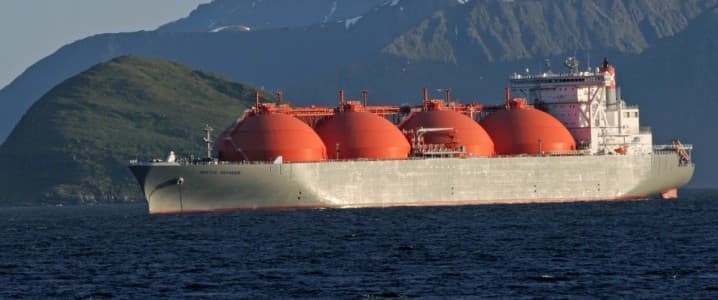Greenpeace activists from 17 countries blockaded Belgium’s Zeebrugge LNG terminal on Thursday, forcing at least three tankers to divert. Protesters in kayaks, inflatables, and small craft occupied the channel, demanding an end to both Russian and U.S. LNG flows.
Fluxys, which operates the terminal, told Reuters that operations inside remain unaffected, though tanker access was restricted and the blockade was expected to continue through Sunday.
The Megara and Rias Baixas Knutsen, both carrying U.S. LNG, along with the LNG Phecda carrying a Russian cargo, were among the ships that changed course, according to LSEG vessel tracking cited by Reuters. Zeebrugge, which serves not only as a Belgian import terminal but also as a re-export hub, sees Russian volumes frequently redirected from there to markets in Spain, Italy, and Asia.
Belgium imported roughly 2.3 million tonnes of Russian LNG in the first eight months of 2025, second only to France, customs data show. Despite efforts to cut ties, Europe remains a significant buyer: Russian gas supplied over 40% of EU imports in 2021, a share that dropped to below 19% by 2024.
Brussels has proposed phasing out Russian gas entirely by 2027, with the first-ever EU sanctions on Russian LNG due to take effect in January 2027. Still, NGO estimates suggest the bloc has sent €8.1 billion to Moscow this year through LNG purchases.
Europe’s reliance on LNG is growing. The IEA projects EU imports will rise 25% in 2025, with U.S. cargoes capturing more than half of incremental supply. New German terminals at Wilhelmshaven and Brunsbüttel, alongside expanded facilities in the Netherlands, France, and Spain, are anchoring this trend. Storage levels remain tight, with inventories only 39% full at mid-year, well below seasonal averages.
On Thursday, the Dutch TTF gas benchmark fell by more than 3%, slipping to 10.82, even as traders monitored disruptions from French LNG strikes and the Zeebrugge blockade. The decline reflects broader softness in European gas markets, though physical risks remain elevated.
By Charles Kennedy for Oilprice.com
More Top Reads From Oilprice.com

